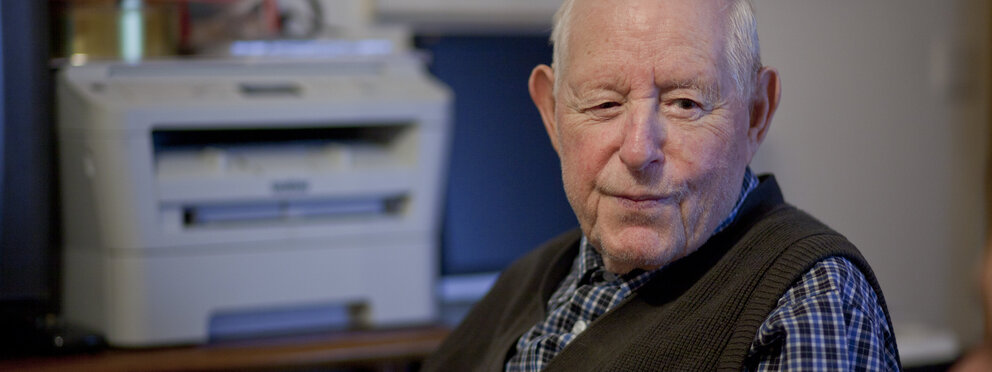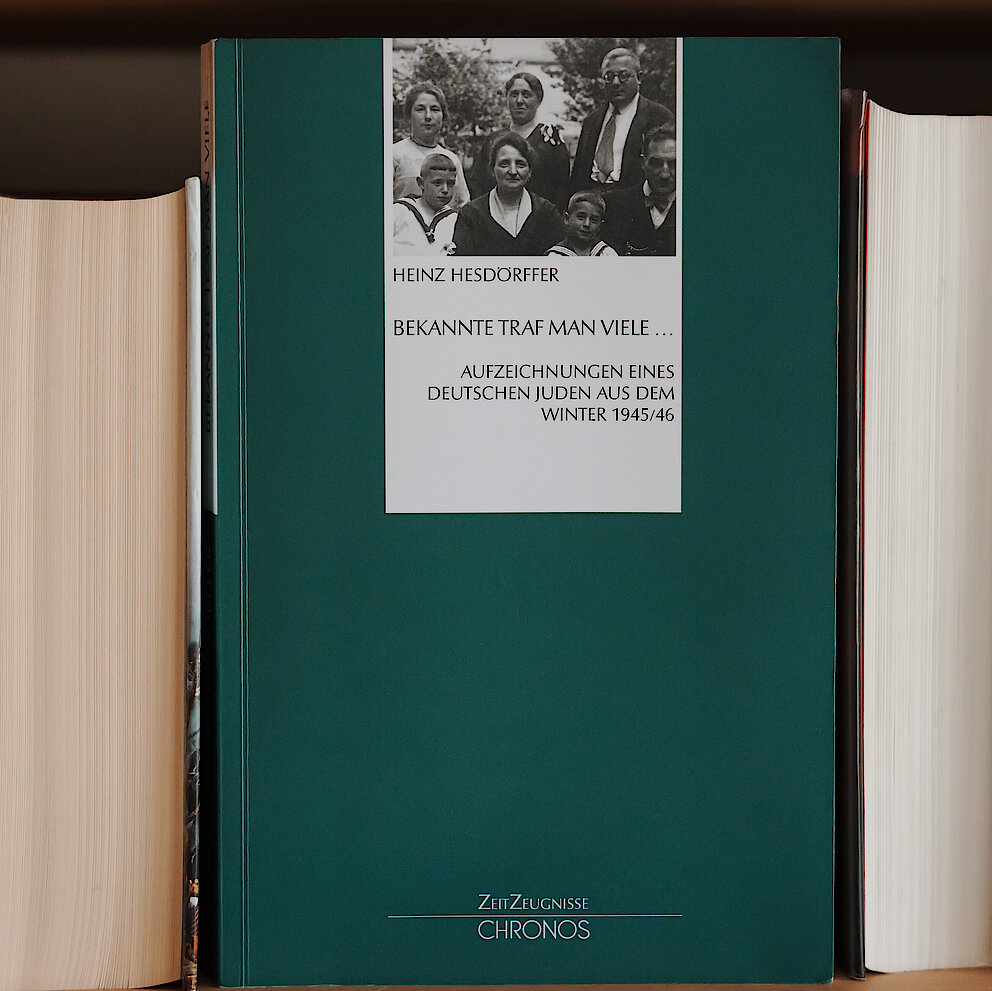
Heinz Hesdörffer
About Heinz Hesdörffer
On 30 January 1923, the Hesdörffer couple were delighted to welcome their first son, Heinz. His parents ran a chocolate and confectionery factory in Bad Kreuznach, but the family's life changed abruptly on Heinz's 10th birthday: Adolf Hitler came to power and Heinz lost his entire family in the years that followed. His father died in 1934 as a result of an operation, his mother and brother died in concentration camps. After that, he was on his own. He survived four concentration camps and a death march. He and the other prisoners were herded from Sachsenhausen concentration camp to the Below Forest, where they had to camp without shelter or supplies until they were finally liberated by the Red Army.
In the winter of 1945/46, Heinz was one of the first survivors to write down his experiences. But his notes were not published because, as he said, nobody was interested in them; he took them with him to South Africa, where he met his wife and started a family. More than fifty years later, his notes were published by a Swiss publishing house. He eventually returned to his native Germany, despite the indescribable suffering inflicted on him there.
Heinz Hesdörffer lived in Frankfurt am Main until his death in 2019 and was very active in the fight against forgetting.
Heinz Hesdörffer died in May 2019 at the age of 96.
"I don't want to live in the past. I want to live in the future. Otherwise I won't be able to laugh or live."
A picture to live on
Shortly after the end of the war, in the winter of 1945/46, Heinz Hesdörffer wrote down his memories. In the book, published 50 years later, he impressively described his story. In our conversations, Heinz Hesdörffer described writing as his therapy, as it helped him to come to terms with the events of these '12 years of Nazi terror' - as the English translation of the book is titled. After that, he no longer had nightmares. By writing about his experiences, Heinz Hesdörffer was able to leave the past behind him and "live in the future".

Our encounter
I particularly remember how awestruck I was when I first met Heinz Hesdörffer. He lived in the Budge Foundation in Frankfurt am Main, as did several other Holocaust survivors and contemporary witnesses we met. This is a place where Jewish and non-Jewish people come together. The fact that Heinz Hesdörffer lived here was certainly no coincidence, but a conscious decision by this man who spent 55 years of his life in South Africa and no longer wanted to have anything to do with the older generation in Germany. Even in the Budge Foundation, contact with his own generation was not easy for him. He preferred to keep to himself and sometimes came across as withdrawn or even harsh to others. It was therefore all the more impressive for us to be able to get to know another, very sensitive side of him in our conversations.
We deliberately approached our first interview with Heinz Hesdörffer with an open mind - knowing full well that he had already published his story. We quickly realised that it was quite easy for him to open up to us and tell us his painful story again. We asked for a second interview, which we then organised differently: We explained in more detail why - despite knowing his book - we wanted to ask about parts of his story again. We talked about our educational work, our vision and the mission of our organisation. Heinz Hesdörffer understood this. The dialogue with children and young people was particularly close to his heart. And so he agreed to tell us his life story again.
To this day, I am incredibly grateful for the encounter with Heinz Hesdörffer. He was a very special person: clever, clear, a fighter. How do you survive the unimaginable horrors of National Socialism? The suffering of five concentration camps? Heinz Hesdörffer did not give up, not for himself and not for others. Even as a prisoner in the Westerbork transit camp in the Netherlands, for example, he stood up for his brother Ernst. Heinz Hesdörffer fought his way through life until his death on 3 May 2019, and we never want to forget him.
Ruth-Anne Damm
Interviewer of Heinz Hesdörffer
